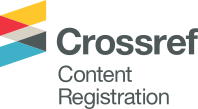Cracking of C3-C4 Hydrocarbons on Cobalt and Palladium-Carbon Catalysts
DOI:
https://doi.org/10.18321/ectj361Abstract
The process of C3-C4 hydrocarbon cracking on cobalt and palladium cardonic catalysts, obtained under conditions of propane-butane mixture pyrolysis, was studied. It was found that using of carbon-mineral catalyst increases gas conversion and selectivity, yield of olefines and aromatic compounds.
References
(2). Molchanov V.V., Chesnokov V.V., Buyanov R.A., Zaytzeva N.A. New metal-carbonic catalysts. Method of making, field of using. Kinetics and catalysis. 1998.v.39, №3. p.407-415.
(3). Sataeva K.E., Toktabaeva N.F., Baykenov M.I., Mansurov R.M. C3-C4 hydrocarbon cracking on carbon containing catalyst. The second Beremzhanovskiy congress on chemistry and chemical technology: Vestnik KazGU, chemical series. Almaty, 1999, В№5 (17). p.81-86.
(4). Sataeva K.E., Mansurova R.M., Zhubanov K.A., Mansurov Z.A. Carbon containing nickel catalyst of process of oil fraction cracking. XVI Mendeleevskiy congress on general and applied chemistry: Tes. dokl. Sant-Peterburg, 1998, V.2. p.154.
(5). Mansurov Z.A. Overcarbonized adsorptioncatalytic systems. Vestnik KazGU. 1998. №3. p. 98-104.
(6). Mansurov Z.A., Kutpanov B.T., Mansurova R.M. Using of overcarbonized chromite sludge for gas purification from hydrogen sulphide. Sb: Combustion of gases and condenced systems. Almaty: Kaz MNTC. 1991.p.61-71.
(7). Mansurova R.M., Abisheva S. S., Arhmetova J.T., Mansurov Z.A. Catalytic carbon formation during the thermocatalytic decomposition of propane. Fourth Combustion Symposium: Abstracts. Istambul, 1995. p. 159-168.
(8). Zakymbaeva G.D., Toktabaeva N.F., Gorbacheva L.V. Obtaining of odorous hydrocarbons from natural and liguefied oil das. Sb: News of Kazakhstan science. Almaty: Nauka. 1997. p.23.
(9). Buyanov R.A. Carburization of catalysts. Novosibirsk: Nauka, 1983. p.207.
Downloads
Published
How to Cite
Issue
Section
License
You are free to: Share — copy and redistribute the material in any medium or format. Adapt — remix, transform, and build upon the material for any purpose, even commercially.
Eurasian Chemico-Technological Journal applies a Creative Commons Attribution 4.0 International License to articles and other works we publish.
Subject to the acceptance of the Article for publication in the Eurasian Chemico-Technological Journal, the Author(s) agrees to grant Eurasian Chemico-Technological Journal permission to publish the unpublished and original Article and all associated supplemental material under the Creative Commons Attribution 4.0 International license (CC BY 4.0).
Further distribution of this work must maintain attribution to the author(s) and the published article’s title, journal citation, and DOI.









